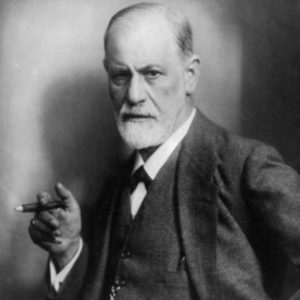 One of the common expressions used by teenagers against adults is the word ‘patronise’. ‘Don’t patronise me’ is a common cry. What these young people are saying is do not use your knowledge and experience as a way of putting me down. I have opinions and even if they are not based on much life experience, I am still allowed to have them and express them.
One of the common expressions used by teenagers against adults is the word ‘patronise’. ‘Don’t patronise me’ is a common cry. What these young people are saying is do not use your knowledge and experience as a way of putting me down. I have opinions and even if they are not based on much life experience, I am still allowed to have them and express them.
Patronising someone is a way of exercising power over them. It may not be as serious or long lasting in its effects at other forms of power-abuse, but we still need to name it for what it is. Yesterday in the Church Times Angela Tilby identified the patronising which many of us have experienced in a church context. She speaks about a scenario where ‘people in distress are patronised by the saved and the certain’. I was struck by this turn of phrase. What Angela is describing is an attitude which we have met many times on this blog. People who hold that the Bible has a single level of truth -the literal- are going to insist on dogmatic answers to a variety of complex issues connected with belief and behaviour. ‘The Bible consistently teaches us that gay relationships are against the will of God; women must be subordinate to their husbands etc..’. The list is endless. Making statements like this is not the beginning of reasoned discussion. It is hitting people with unarguable tenets of dogmatism. The Word of God has been spoken and there can be no other way to proceed.
Angela Tilby has identified an increasingly powerful culture in our national church. This is the brand of evangelicalism which knows only a single way of speaking about truth. The Bible is held to speak clearly about what it means to be a Christian and how we should live our lives. There are however gaping problems for such an assumption. In the first place there many Christians, including self-identified evangelicals, who do not agree with simplistic answers to complex questions. Still less do these Christians, from a variety of backgrounds, agree that the Bible has a single answer to many of the difficult questions of morality whether personal or societal. Most of us who have studied Scripture to any depth recognise that the issue of gay marriage cannot be solved by an appeal to a couple of verses in Romans and some questionable references to gay behaviour in the book of Leviticus. The Bible simply does not allow itself to be mined in such a crude way for proof texts. The use of proof texts, either in preaching or teaching, is experienced as patronising and even abusive. All passages have to be read in their context, and the culture of the time of writing must be allowed to influence our understanding of what the text says to us now.
Christians do not now and probably never have agreed exactly how to interpret Scripture. To pretend that there is a universal consensus is simply dishonest. A still greater problem for Christians who interpret the Scripture and its message as though there are single meanings and interpretations is the huge gulf it creates with those outside the church. A non-Christian looking at the church will be quick to notice the amount of energy given to condemning a variety of sexual behaviours. It may be incorrect to suggest that Christians are universally 50 years behind the rest of society in attitudes about sex. But that is the impression that they give. Why would anyone ever wish to join a group that apparently seems to focus on sexual prohibitions above everything else? The more that we hear about the horror felt against gay sex among some Christian people, the greater the alienation that many people in our society will feel towards the church, even the Church of England.
Angela Tilby’s article recognises that there are deep spiritual needs which exist in many individuals within our society. Traditionally the church has been a place where people could come to explore what she calls ‘existential distress’. The training of clergy, I hope, still allows them to come alongside people experiencing such problems. Perhaps they can be helped to discover gently and gradually the language of spirituality with which to approach them and deal with them. Just as the loud music of a revivalist service is discordant and inappropriate to a person suffering from depression, so dogmatic and inflexible biblical teaching seems equally unhelpful to the actual needs of most people. Over the course of my ministry I have noticed in many places the way the church has withdrawn from trying to be at the heart of its community. It has been changed into a holy huddle concerned only for the spiritual well-being of those who attend. In the past the boundaries between church and community were fuzzy and indistinct. Who knew the precise motivation of parents who brought their children for baptism? Now that commitment is questioned to the point that the open but searching individual is made to feel that they have to remain outside.
Angela Tilby’s piece will be seen as (and already has been) an attack on evangelicals. It is not. It is far more to be read as a challenge to the kind of mind-set that has room for only one sort of Christian. ‘In my Father’s house are many mansions’. That should be a motto to describe the kind of church that many of us want to live in, a place where there is variety, choice and a complete absence of the kind of bullying that is implied by the word ‘patronise’. Long live a church which is free from the experience of being patronised by the ‘saved and the certain.’ That is the church I want to belong to.






